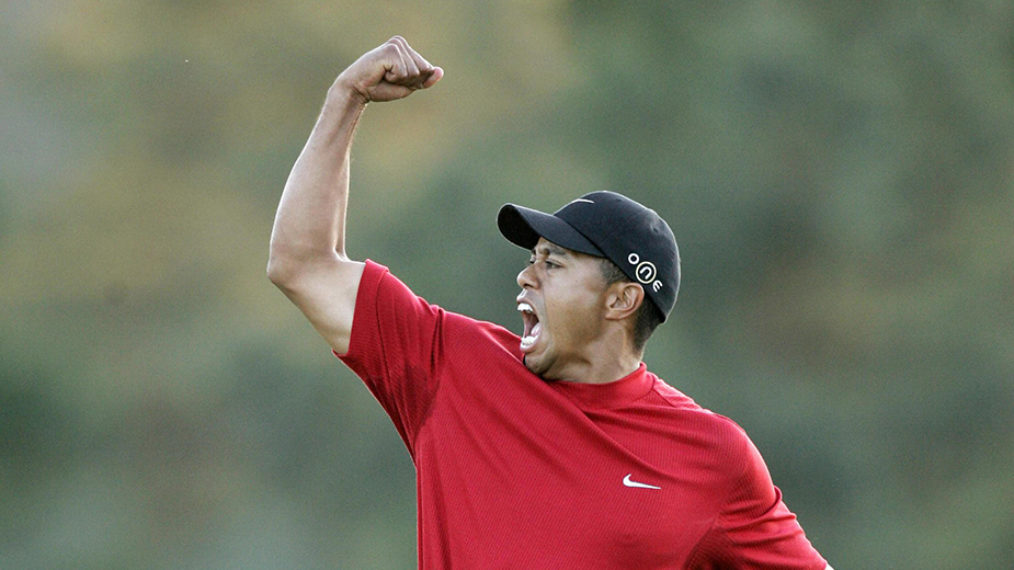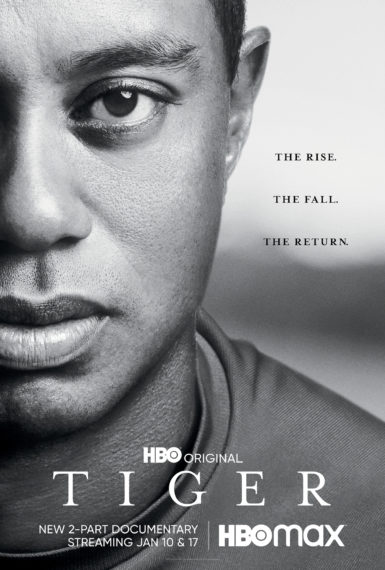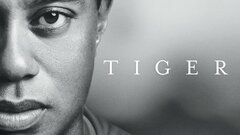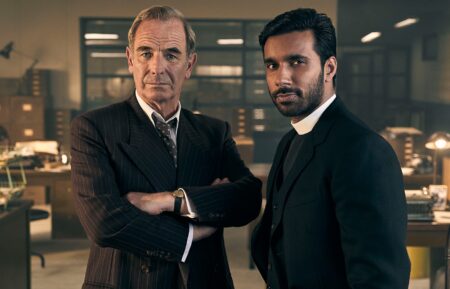Roush Review: HBO’s Riveting Portrait of Tiger Woods

Review
Few superstars ever dominated a sport the way Tiger Woods ruled golf in the late 1990s and 2000s. And few paid as dear a price in body and soul, as the searing two-part documentary Tiger (concluding Sunday, Jan. 17) depicts in riveting detail.
A cautionary rise-and-fall-and-rise-again tale, Tiger is sensational in every aspect, including a frank news-making interview with his former mistress, Rachel Uchitel, for the first time telling her sordid side of the darkest chapter in Woods’ tabloid history. She’s just one of many voices weaved throughout by directors Matthew Heineman and Matthew Hamachek, though Woods himself is seen and heard only through the copious footage of his triumphs on the course, talk-show appearances (including Oprah, naturally) and his disgrace off the field.
With commentary from sports journalists, family friends, and former caddie Steve Williams, Tiger explores his relentless drive to be the best, but also his persistent demons. Nurtured for greatness by his domineering and philandering father, Earl, Woods was a talk-show sensation at 2-and-a-half years (wowing celebrity onlookers on The Mike Douglas Show), a phenom by 20, and soon thereafter a global brand, carrying with it the highest of cultural expectations for a mixed-race role model.
“A lot is asked of athletes of color that is not asked of other athletes,” observes Bryant Gumbel (host of HBO’s distinguished sports newsmagazine). And while an executive for Woods’ Nike ad campaign asserts, “This kid is built for pressure,” Woods’ increasingly reckless and self-destructive behaviors in the rush of fame and fortune led to a personal, than physical, collapse.
But as he proved with his stunning comeback at the 2019 Masters, it’s unwise to underestimate the resilience of a born athlete like Tiger Woods.

(Courtesy of HBO)
His third act isn’t over.
Tiger, Documentary Premiere, Sundays, January 10 and 17, 9/8c, HBO









